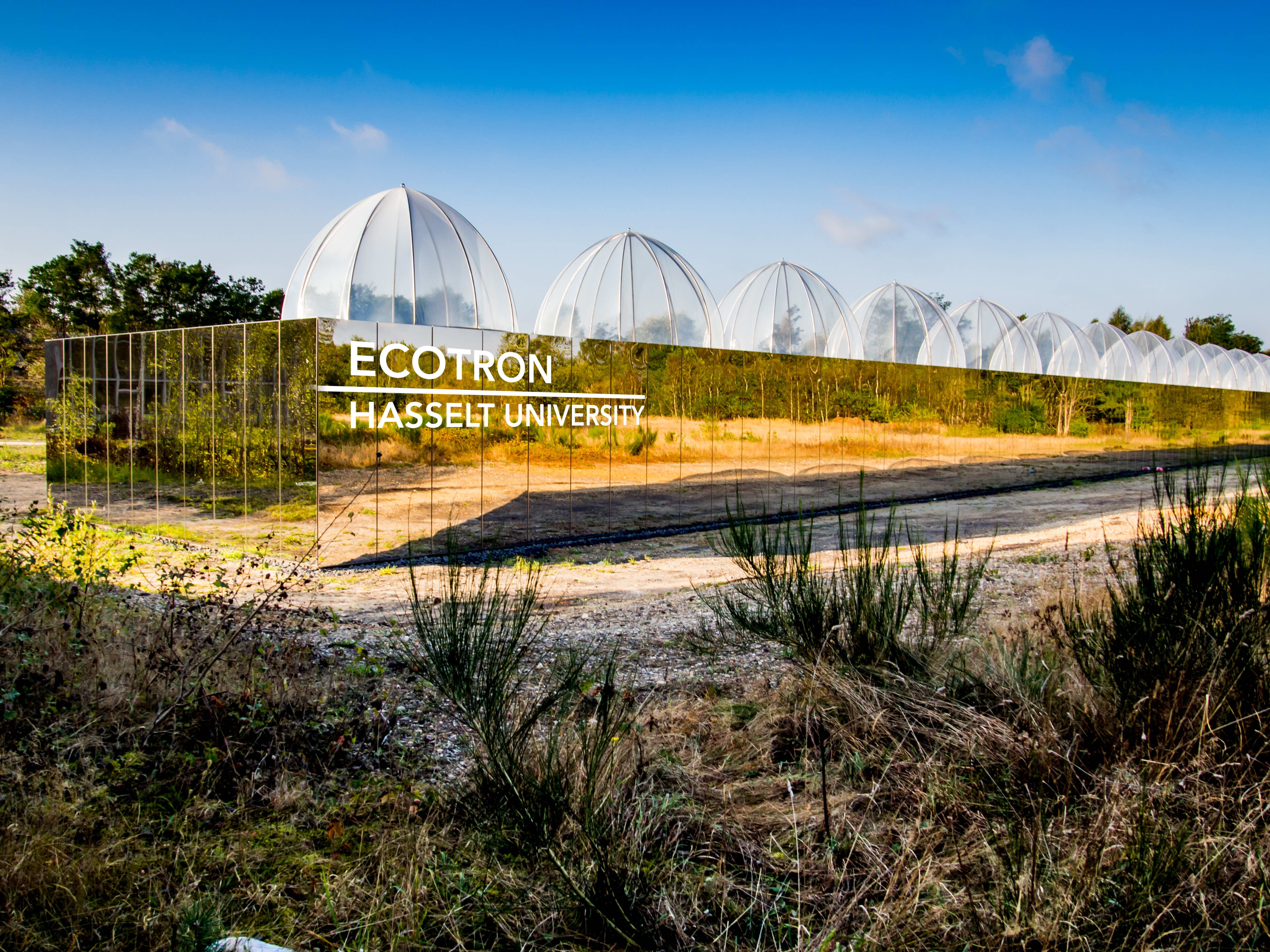Flemish university studies impact of climate change on pear cultivation

Hasselt University researchers planted twelve conference pear trees on Tuesday to research the effects of climate change. The trees will grow inside the domes of the UHasselt Ecotron, where the conditions of a specific ecosystem can be simulated. Several domes will simulate the expected climate of 2040. "We are studying the quality, quantity and growth of pears and analysing the composition of the soil," explained UHasselt professors Nadia Soudzilovskaia and François Rineau.
The researchers are taking the worst-case scenario as a baseline, without any reduction in CO2 emissions. They expect the climate to be two to three degrees warmer in 2040, along with more extreme weather conditions. In those controlled conditions, the researchers can analyse any potential differences. They will study the quality and quantity of the fruit, the growth of the pears and the impact of climate change on the soil. The researchers also want to find out what fungi and diseases can occur.
"We assume that pear trees can withstand global warming well and that warmer temperatures have positive effects on fruit," said Soudzilovskaia. "But we are not sure about that. There may also be unforeseen circumstances, especially regarding the soil and the diseases that may develop there."
"Climate change has a big impact on fruit production and quality," added Limburg deputy Inge Moors. "With this project, we will be able to see the pear of 2040. That way, we can find out how we need to adapt cultivation and prepare growers for the future so that they can continue their current success."
The pear trees planted on Tuesday will have to adapt to their new habitat for the first year. The first results of the so-called QPear project are not expected for another two years.
#FlandersNewsService | The UHasselt Ecotron. © BELGA PHOTO
© BELGA VIDEO MARC DIRIX